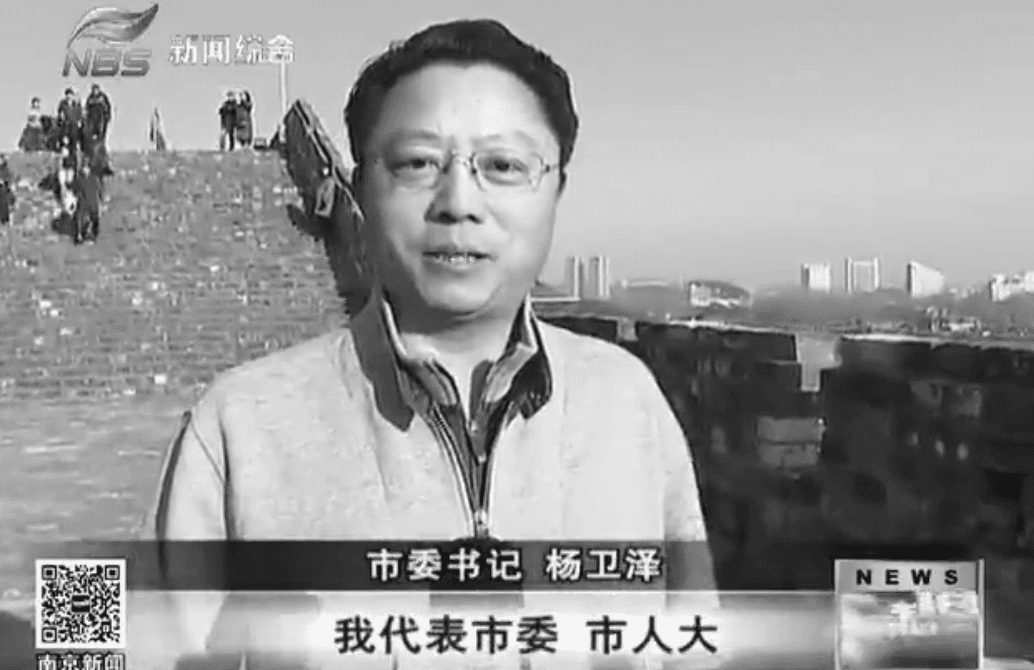The Chinese Communist Party (CCP) secretary of a major southern Chinese city was put under investigation for “severe violation of discipline and law,” according to China’s anti-corruption agency on Jan. 4.
53 year-old Yang Weize, the Party Secretary of Nanjing, capital of Jiangsu Province, has earned the dubious distinction of being the first sacked provincial-level official in China in 2015. (Likely the first senior official to be sacked was the foreign ministry’s Zhang Kunsheng, who was ousted on Jan. 2).
Yang’s last public appearance was on New Year’s day, when he participated in the 33rd New Year marathon of Nanjing, according to the state-run Central China Television (CCTV). Footage shows Yang shooting the starting gun; after the race he greets citizens on television, representing the Nanjing government.
Yang also led an inspection team for anti-corruption tasks in Nanjing on Dec. 29, according to state-run Nanjing Daily.
He was taken away for investigation at a high speed rail station in Nanjing on Jan. 4, according to the Chinese business magazine Caixin. An inside source told the publication that Yang was even invited to attend a meeting with retired officials on Jan. 6, the report says—indicating that he had been given no warning that the arrest was imminent.
A Nanjing official told Caixin that Yang’s investigation is related to his close connections with Zhou Yongkang, the disgraced former security chief in China. Yang served as party secretary in Wuxi City of Jiangsu, the hometown of Zhou Yongkang, for over six years. Local sources indicated that Yang frequently visited Zhou during his post in Wuxi, the report says.
Overseas Chinese media Boxun reported last September that Yang bribed Zhou with young female anchors, and said that Yang is facing investigation.
Yang never left Jiangsu’s official circles for the past 30 some years, and, judging by the treatment of many of his former colleagues, he did well to last as long as he did.
A number of Yang’s former colleagues have been sacked for corruption. These include Ji Jianye, former mayor of Nanjing who has close tie with Jiang Zemin, the former regime leader, who was taken down in October 2013. There is also Zhang Juyuan, who was vice director of the Jiangsu Transportation Department when Yang was the director of the department, and Jiang Renjie, vice mayor of Suzhou City at a time when Yang was the mayor. The former mayor of Wuxi City, when Yang was the Party Secretary, has also been taken down.
Yang is also a documented human rights violator, according to the website Minghui.org, which conveys primary materials on the persecution of the Falun Gong spiritual practice in China. As mayor of Suzhou, Yang led the violent campaign against Falun Gong in that city—Minghui says that many practitioners of Falun Gong in the city were given heavy prison terms for their beliefs while Yang was in charge and helping to push forward the campaign.
With additional research by Yue Hua.




